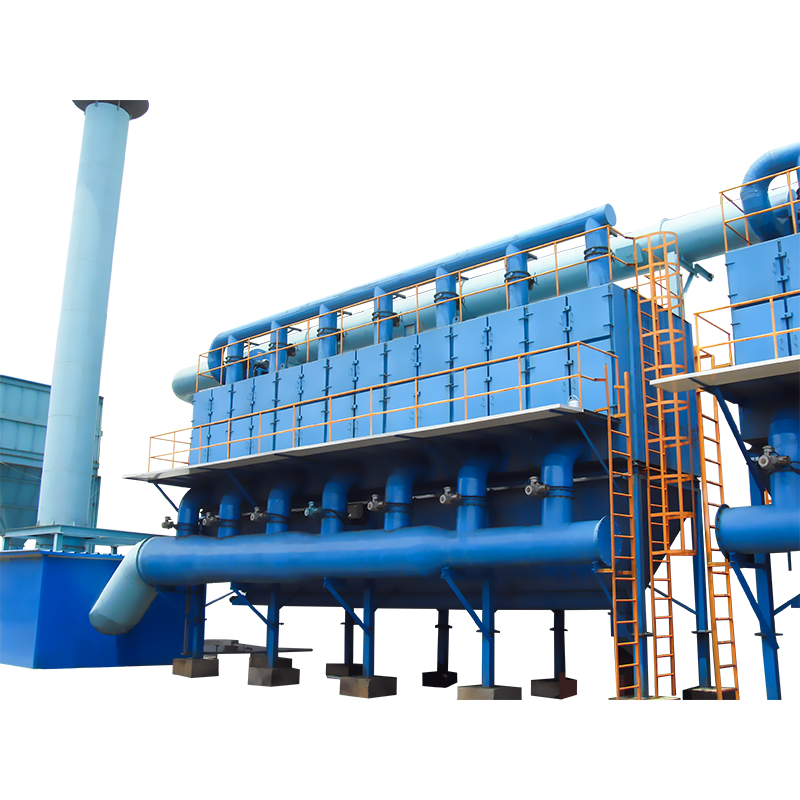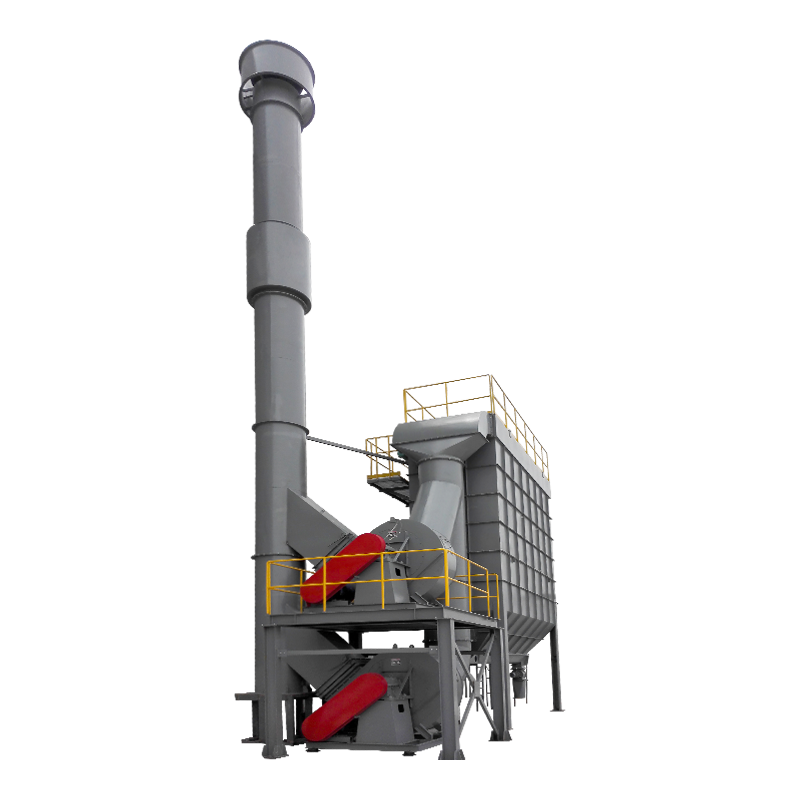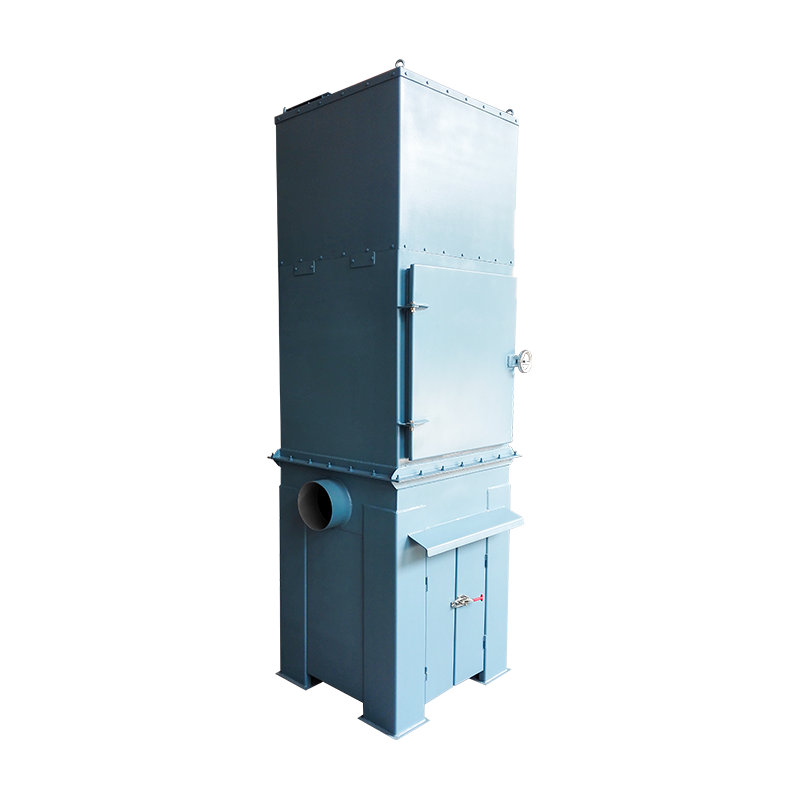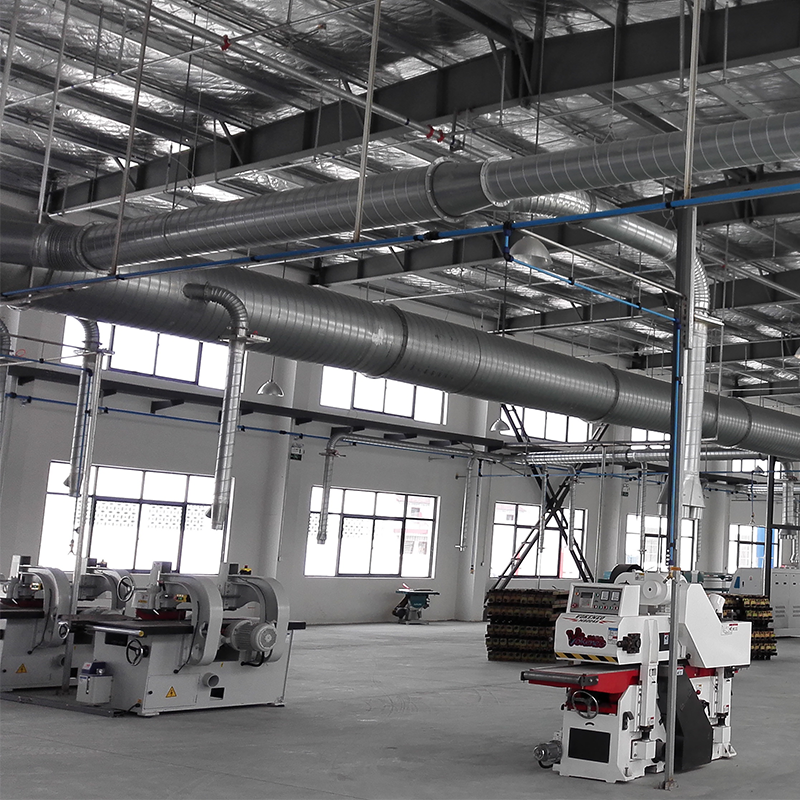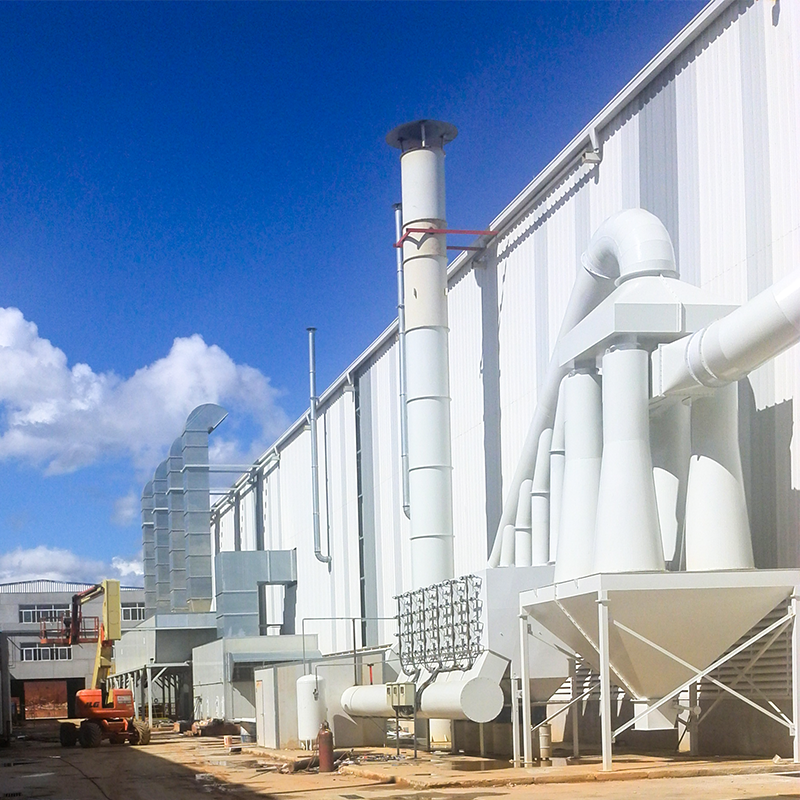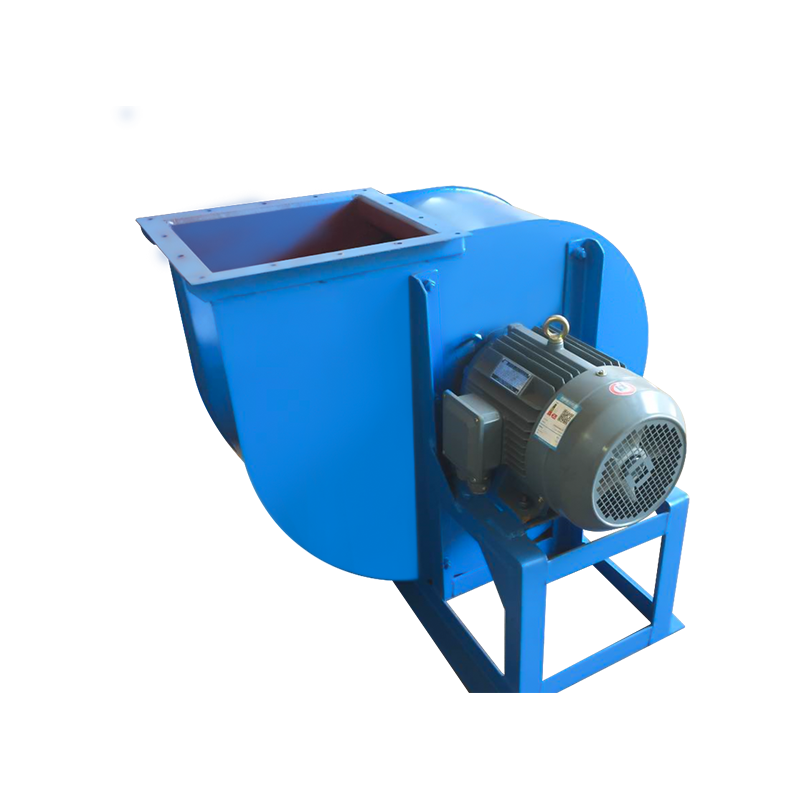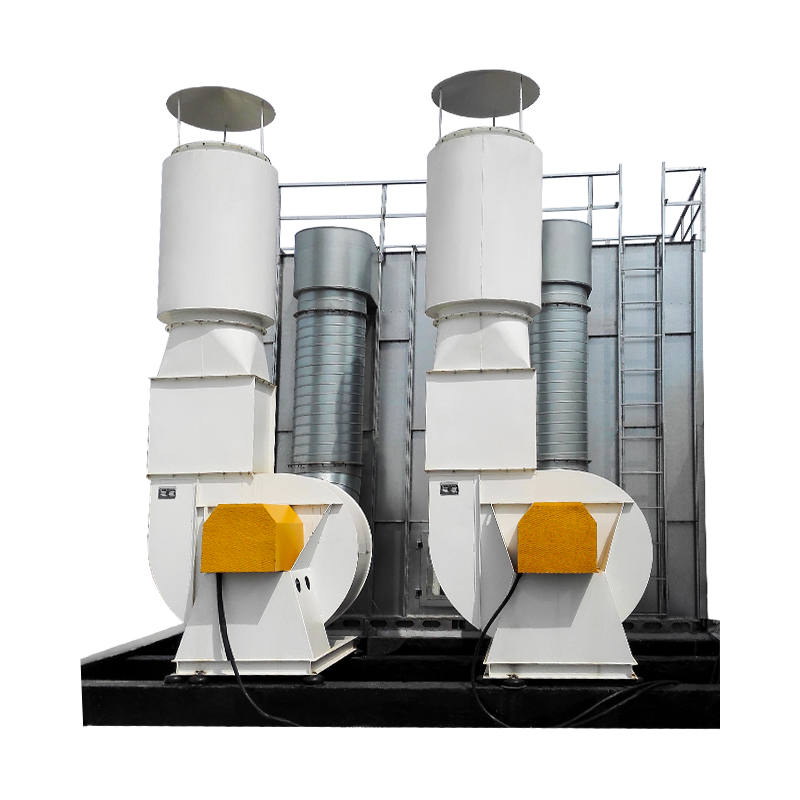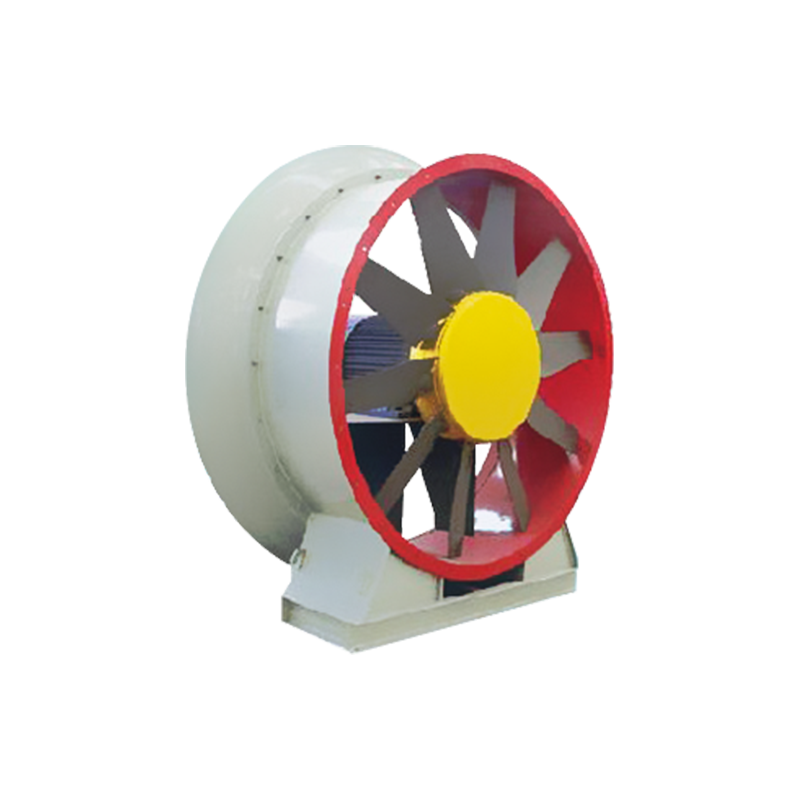Which industries or fields are Air Box Pulse Dust Collector mainly suitable for dust removal needs?
Air Box Pulse Dust Collector (air box pulse bag dust collector) is widely used in dust removal needs in multiple industries and fields due to its high efficiency, stability, and easy maintenance. The following are some of the main application industries:
Cement industry: In the process of cement production, a large amount of dust will be generated in the crushing, grinding, and calcination of raw materials. Air Box Pulse Dust Collector can effectively capture these dusts to ensure the cleanliness of the production environment and the compliance with emission standards.
Steel and metallurgical industry: In the process of steel production, sintering, ironmaking, steelmaking, rolling and other processes will generate a large amount of smoke and dust. Air box pulse bag dust collector is suitable for dust removal in these links, which helps to improve the working environment, protect equipment, and reduce air pollution.
Thermal power generation industry: The flue gas of the boilers of coal-fired power plants contains a large amount of pollutants such as particulate matter and sulfur dioxide. Air Box Pulse Dust Collector plays an important role in the flue gas purification system, which can effectively remove dust in the flue gas and reduce pollutant emissions.
Nonferrous metal smelting industry: During the smelting process of nonferrous metals such as copper, aluminum, and zinc, a large amount of smoke containing metal particles will be generated. The air box pulse bag dust collector can effectively collect these metal smoke, which not only protects the environment but also realizes the recycling of resources.
Chemical industry: In the chemical production process, many process links such as the transportation, reaction, drying, and crushing of raw materials will generate dust. Air Box Pulse Dust Collector can meet the dust removal needs of these links to ensure production safety and environmental hygiene.
Building materials industry: In addition to the cement industry, other fields in the building materials industry such as ceramics, glass, and stone processing will also generate dust. The air box pulse bag dust collector is also suitable for dust removal in these industries.
Grain and food processing industry: During the grain and food processing, some fine particles and dust will be generated. Although these dusts are less toxic, they have a certain impact on the sanitary quality of the product. Air Box Pulse Dust Collector can ensure the cleanliness of the production workshop and improve the sanitary quality of the product.
What are the key links in the maintenance and care of Air Box Pulse Dust Collector in daily operation?
Air Box Pulse Dust Collector, that is, pulse air box dust collector, is essential for ensuring the stable operation and efficient dust removal of dust collector. Here are some key links:
1. Daily inspection and record
Performance monitoring:
Regularly check and record the dust collector's processing air volume, pressure and temperature of each test point to ensure that they are consistent with the design value.
Use a differential pressure gauge to monitor the system pressure difference to reflect the operating status of the dust collector. An increase in pressure difference may mean that the filter bag is blocked, water vapor condensation, the cleaning mechanism fails, or the ash hopper accumulates too much dust; a decrease in pressure difference may mean that the filter bag is damaged, the pipeline is blocked, or the valve is closed.
Filter bag inspection:
Frequently check the installation and working condition of the filter bag, including whether there is bag drop, loose mouth, wear or damage.
Pay attention to whether dust is hardened on the filter bag and whether there is dust leakage during the cleaning process.
Cleaning system inspection:
Check the operation of control valves such as pulse valves and timers to ensure that the cleaning cycle and cleaning time are set reasonably.
Failure of the rubber diaphragm of the pulse valve is a common fault and needs to be repaired or replaced in time.
2. Regular maintenance
Cleaning and lubrication:
Regularly clean the inside of the dust collector, including dust and dust accumulation in filter bags, ash hoppers, pipes and other parts.
Lubricate parts that need lubrication, such as bearings and valves.
Air source system inspection:
Check the pressure, flow and stability of the air source system to ensure that the air volume for pulse cleaning is sufficient and stable.
Clean the gas-liquid separator to prevent oil mist and water droplets from entering the dust collector.
Electrical system inspection:
Regularly check the wiring and components of the electrical control system to ensure safety and reliability.
Monitor the voltage, current and temperature of the motor to prevent overload and overheating.
3. Special maintenance and adjustment
Air volume adjustment:
According to the system operation, adjust the air volume in time to ensure that the dust collector operates in the best condition.
Excessive air volume may cause the filter bag to break, while too little air volume will affect the dust removal effect.
Filter bag adjustment:
After the equipment has been running for a period of time, the filter bag may stretch or relax, and the length of the filter bag hanging mechanism needs to be adjusted.
Check and replace the severely worn filter bags to maintain the dust removal efficiency.
Shutdown maintenance and care:
During the shutdown period, the dust collector needs to be fully inspected and cleaned to prevent dust accumulation and corrosion.
For equipment that has been shut down for a long time, it is necessary to run it idle to maintain the performance of the equipment.
IV. Safety measures
Fire and explosion prevention:
When handling flammable and explosive dust, fire and explosion prevention measures must be taken, such as setting explosion-proof valves and controlling the inlet temperature.
Regularly check whether there are sparks or open flames inside the dust collector.
Personnel safety:
During inspection and maintenance, the power supply and gas supply must be cut off, and warning signs must be hung.
Operators must wear protective equipment, such as dust masks and helmets.

 English
English Español
Español عربى
عربى
